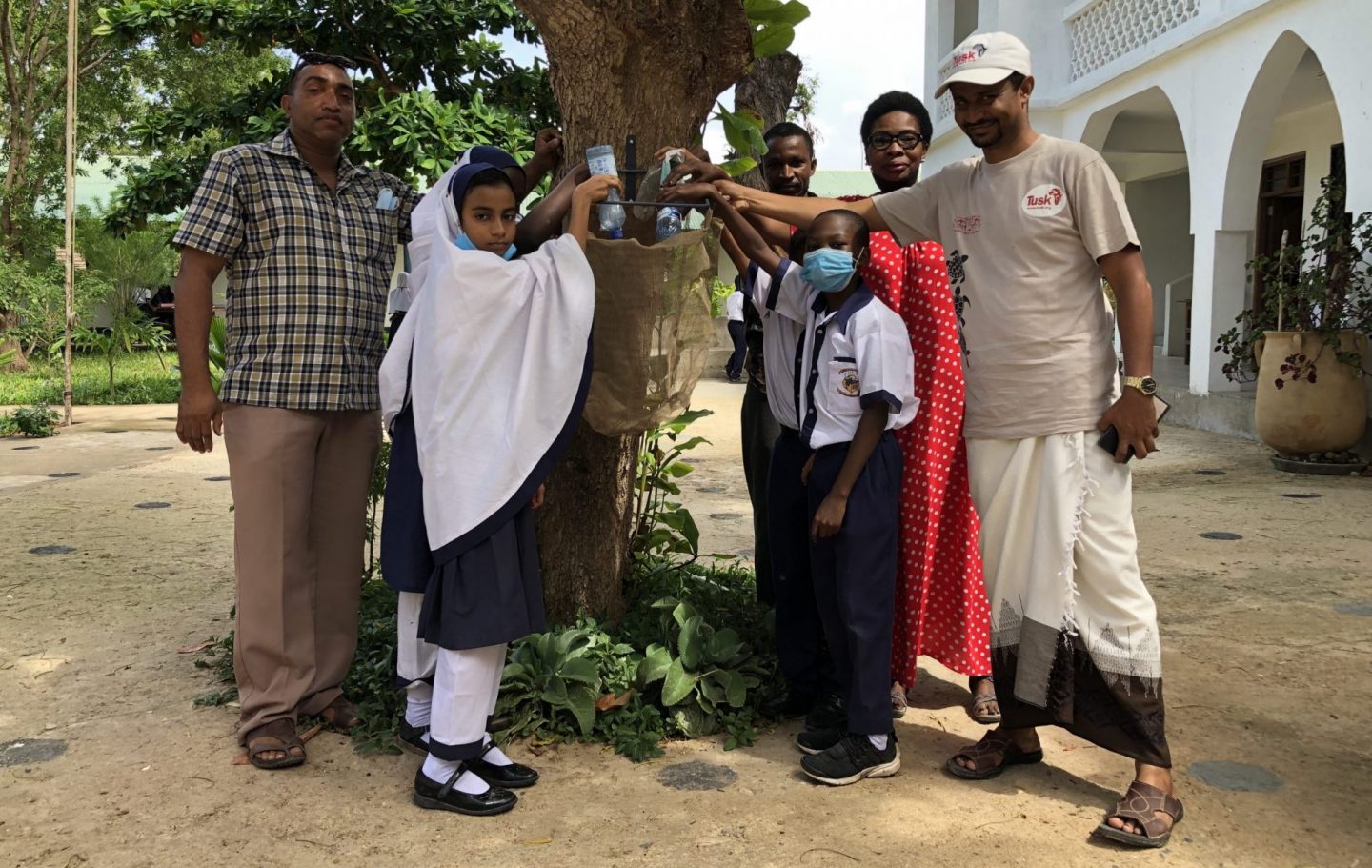
On a small island in an archipelago off the Indian Ocean, within the town of Shela, Lamu, Kenya, a 20-year community grassroots movement led by Tusk’s partner LaMCoT continues to prove that community-based conservation solutions can sustain and conserve fragile ecosystems.
The first testament to this is Shela’s pristine streets and beaches; a stark contrast to the neighbouring Lamu Town. This is due to LaMCOT’s continued clean-up solutions. The most recent of these is their support of the Shela Environmental Residents Group (SERG) waste management programme. While trash-day in other parts of the world may conjure up images of large trucks, in Shela, donkeys do the job, the only suitable means of transport on the narrow and sometimes steep island streets.
SERG’s clean-up programme services a total of 200 households daily in addition to large houses and hotels on Shela Island. The fees range from a monthly fee of Ksh. 200 (£1.31) per month per household to Ksh. 60,000 (£ 394) for the larger hotels, making this programme largely self-sustaining. Plastic collected from households is re-purposed; aluminium cans sent to a plant in Mombasa – an island 2 hours away – for recycling. The rest is incinerated in a community cooker, which local women use to cook their dishes. An all-round self-sustaining and sustainable solution.
A few metres from the community dumpsite are Shela Primary School and Bright Girls’ Secondary school. Both of these a part of LaMCoT’s 13-school education programme. Here students learn about how to protect their fragile marine ecosystem while also learning about how conservation is practiced in other parts of Africa through Tusk’s PACE programme. Their fondest memories are of excursions to turtle nests to see new endangered turtle hatchlings make their way into the Indian Ocean. Regular beach clean-ups also form part of their environmental education.
At Bright Girls’ Secondary school students are learning practical lessons, for example, growing the food they eat. Vegetables grown in their school greenhouse now supplement their school lunches. For students who have to walk kilometres to and from school daily, the importance of this cannot be overstated. Their principal shares that a noted improvement in concentration has been reported.
Fishing is a critical part of the economy in Shela as with other marine environments. However, making sure the waters are fished sustainably is a challenge LaMCoT have had to navigate. The idea for the Kiweni Community Conservation Area (CCA) was born out of this necessity. This is a 741-acre no-take zone where fish and other marine species can propagate freely, and also a community snorkelling zone where boat captains can bring guests for some of the best views and snorkelling on the island. This provides important conservation incentives, and former turtle poachers now earn an income through community tourism.
As in other community conservation areas, rapid growth, urbanisation and industrialisation remain challenges to contend with. The Kiweni CCA is adjacent to the main deep-sea channels of a new port recently commissioned by the Kenyan government. The regular usage of this area by cargo ships will have several ramifications on the habitat including oil spills and sedimentation which may affect coral visibility.
As a back-up plan, the LaMCOT team have identified a back-up area for a similar project and signed an agreement with a number of communities in the neighbouring Kinyika Island. At this site, approximately similar in size to the Kiweni CCA, LaMCOT plan to ramp up their research and conservation efforts.
LaMCOT’s responsive and community-based grassroots approach give every confidence that they will be able to navigate any challenges that continue to arise in the preservation of this critical biodiversity resource.
